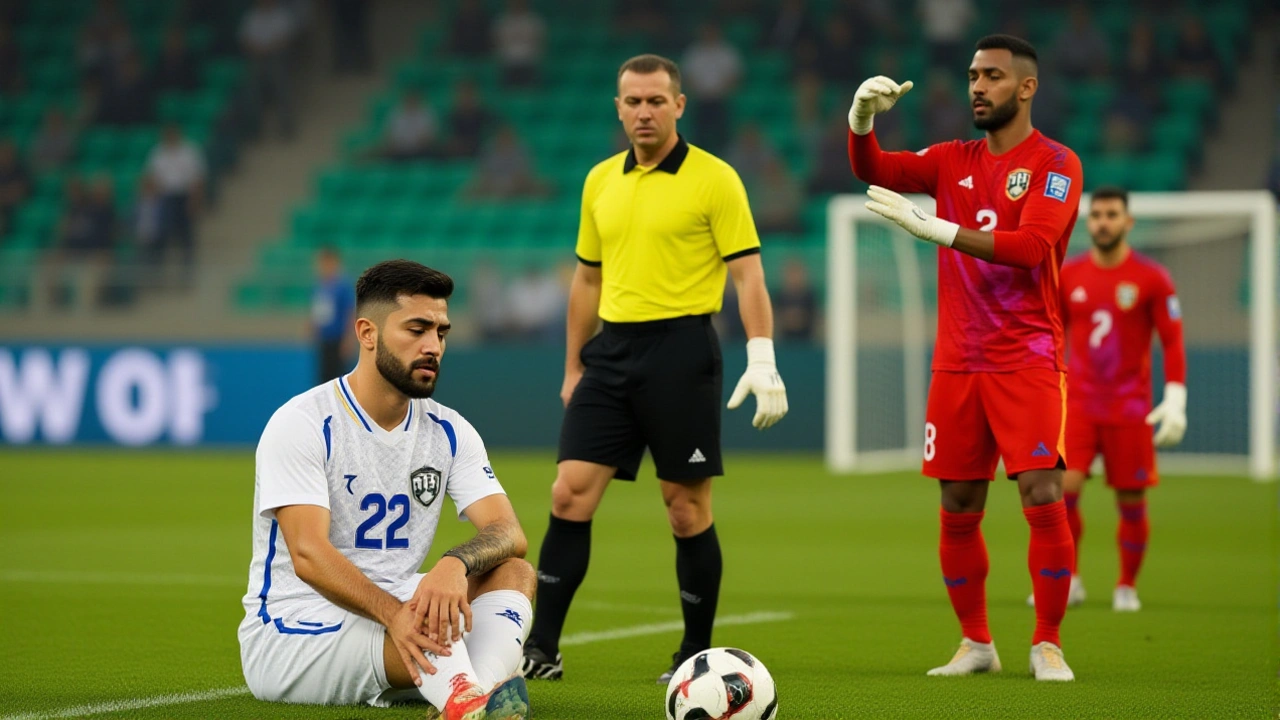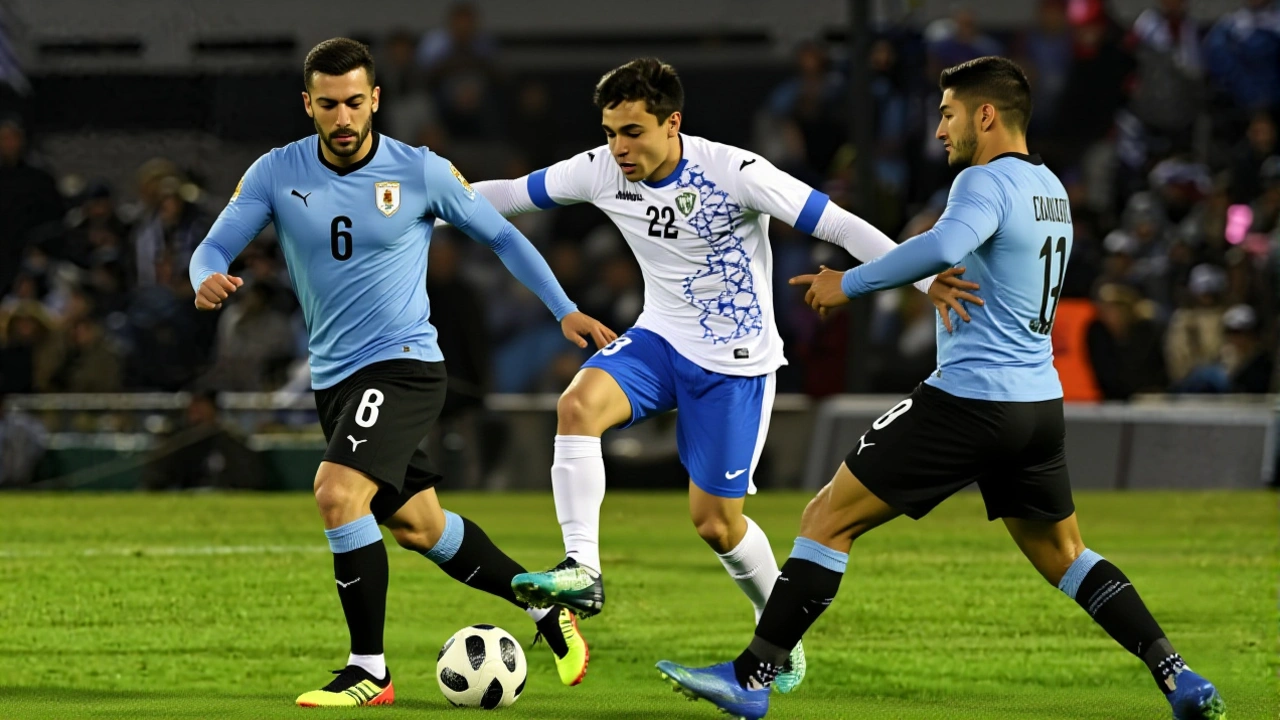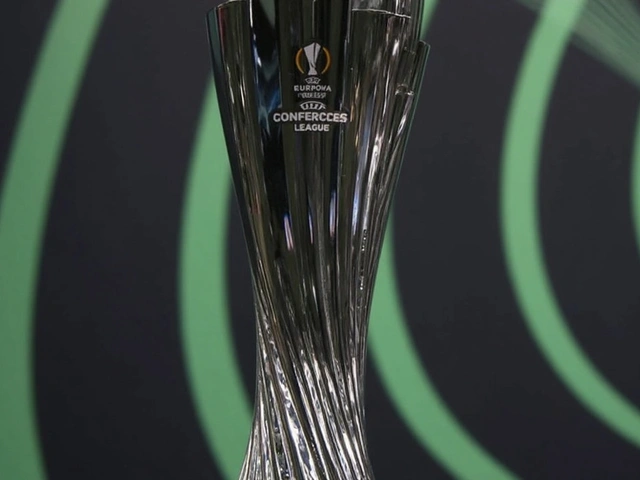When Cristhian Stuani hit a double to give the Uruguay national football team a 3–0 win over the Uzbekistan national football team in the China Cup 2019 semi‑final, the shockwaves were felt from Nanning to Montevideo. The match unfolded on 22 March 2019 at the Guangxi Sports Center, under the watchful eye of Serbian referee Milorad Mažić. Uruguay’s coach Óscar Tabárez praised his side’s composure, while Uzbekistan’s boss Héctor Cúper lamented missed chances. The three‑goal margin not only booked Uruguay a place in the final but also set the stage for a dramatic third‑place showdown.
Background: The China Cup’s Growing Prestige
First launched in 2017, the China Cup 2019Guangxi Sports Center was designed as a friendly‑match showcase during the FIFA international window. By its third edition, the tournament had attracted a mix of emerging Asian sides and established South American powers, offering a rare test for teams gearing up for continental championships. Uruguay arrived as defending champions, having lifted the trophy in 2018, while Uzbekistan saw the event as a chance to gauge themselves against top‑ranked opposition ahead of the Asian Cup qualifiers.
Semi‑Final Showdown: Uruguay vs Uzbekistan
The semi‑final was billed as a clash of styles – Uruguay’s gritty, forward‑pressing game versus Uzbekistan’s disciplined, counter‑attacking approach. Early on, both sides tussled for possession; Uruguay held a modest 54 % share, but Uzbekistan’s compact shape kept the Uruguayans honest. The dead‑lock finally broke in the 27th minute when Matías Vecino fed Stuadi on the edge of the box, and the striker curled a first‑time shot into the top corner.
Just eight minutes later, Uruguay doubled the lead. A swift transition saw Gaston Pereiro slip past the Uzbek backline, delivering a perfect low cross that Stuadi met with a clinical finish. The third goal arrived in the 68th minute when a set‑piece flicked in off Federico Valverde and the ball ricocheted to Luis Suárez, whose tap‑in sealed the match.
Statistically, Uruguay out‑shot Uzbekistan 10‑5, with four on target compared to Uzbekistan’s lone attempt. The Uzbek goalkeeper made four solid saves, but the defensive lapses proved costly. The disciplinary record was relatively clean – three yellows for Uzbekistan, one for Uruguay – underscoring the tactical rather than physical nature of the contest.
Key Performances and Tactical Takeaways
Stuadi’s brace crowned him as the tournament’s joint top scorer, his positioning and finishing reminding fans why he’s a mainstay in Uruguay’s attack. Meanwhile, Eldar Šomurodov was Uzbekistan’s bright spot, forcing a handful of half‑chances and keeping his side within touching distance.
Coach Tabárez stuck to his trusted 4‑4‑2, encouraging width through wing‑backs and swift vertical passes. The strategy paid dividends, especially in the second half when Uruguay shifted to a high press, forcing errors that led to the decisive third goal. Cúper, on the other hand, opted for a disciplined 4‑5‑1, hoping to absorb pressure and hit on the break – a plan that worked in phases but ultimately fell short against Uruguay’s superior depth.
Reactions: Coaches, Players, and Fans
After the final whistle, Tabárez praised his squad’s “clinical edge” and highlighted the importance of the tournament as a rehearsal for the upcoming Copa América. He also noted the need to tighten defensive transitions, something the coaching staff will address in the next training camp.
Cúper, speaking to local media, admitted disappointment but stressed the value of facing a world‑class opponent. “We learned a lot about where we need to improve,” he said, adding that the team’s morale remained high after securing third place later in the week.
Fans in Nanning, who turned out in numbers approaching 19 000, showed a mix of enthusiasm for the high‑octane football and curiosity about the South American flair. Social media bursts featured clips of Stuadi’s goals, with hashtags like #StuadiShow and #ChinaCup2019 trending across Chinese platforms.

Impact on Both Nations
For Uruguay, the triumph reinforced their status as a friendly‑match powerhouse and provided a confidence boost ahead of the Copa América, where they are expected to be serious contenders. The win also helped cement Tabárez’s tactical philosophy, emphasizing pressing intensity and swift ball circulation.
Uzbekistan’s journey, although ending in a semi‑final loss, ended positively with a 1‑0 victory over China in the third‑place playoff – a result secured by a solitary strike from Šomurodov. The podium finish marks the nation’s best performance in the China Cup’s brief history and signals progress as they aim for a deeper run in the Asian Cup.
Looking Ahead: What’s Next?
Uruguay will regroup in Montevideo, where a friendly against Chile is slated for early April, giving Tabárez a chance to test emerging talent alongside the veterans. Meanwhile, Uzbekistan returns to Tashkent to prepare for their next World Cup qualifying window, with Cúper likely to fine‑tune the defensive shape that cost them in the semi‑final.
Both teams will carry the lessons from Nanning into their respective continental campaigns, making the China Cup 2019 a pivotal stop in the 2019 international calendar.
Frequently Asked Questions
How did Uruguay’s victory affect their Copa América preparations?
The win gave Uruguay a morale boost and a chance to test Tabárez’s high‑press system against a disciplined opponent, helping the squad fine‑tune tactics before the Copa América in June.
What did Uzbekistan learn from playing Uruguay?
Uzbekistan’s coaching staff highlighted the need for quicker transitions and sharper defensive organization when facing teams that press aggressively, insights they will apply in upcoming Asian Cup qualifiers.
Who were the standout players of the semi‑final?
Cristhian Stuadi’s two goals made him the clear star, while Matías Vecino’s midfield control and Gastón Pereiro’s assist were also pivotal for Uruguay. For Uzbekistan, Eldar Šomurodov’s work rate stood out despite the loss.
Why is the China Cup considered an important tournament?
Since its inception in 2017, the China Cup offers national teams competitive minutes during the FIFA window, allowing them to test tactics and integrate new players against varied international styles.
When and where will the next matches for Uruguay and Uzbekistan be held?
Uruguay faces Chile in a friendly in Montevideo on 5 April 2019, while Uzbekistan returns to Tashkent for a World Cup qualifier against Jordan on 8 June 2019.




Another routine win, nothing groundbreaking.
Uruguay showed the kind of relentless pressure any coach would love to see when prepping for a tournament. Their quick transitions left Uzbekistan scrambling and highlighted why Tabárez trusts that system.
When the whistle blew in Nanning, the atmosphere crackled with anticipation, and the South American reds set out to prove their pedigree. From the very first pass, Uruguay pressed high, refusing to give the Uzbek backline any breathing room. The opening goal by Stuani felt like a thunderclap, echoing through the stadium and igniting the fans into a frenzy. It wasn’t just the strike; it was the way he timed his run, slipping between defenders as if space were a phantom. Eight minutes later, Pereiro’s low cross sliced through the midfield, and Stuani’s second touch was poetry in motion, a clinical finish that left the keeper staring at the net. The third goal, a tap‑in from Suarez after Valverde’s set‑piece flick, seemed almost inevitable, a testament to Uruguay’s relentless hunger. The Uzbek side tried to regroup, their compact shape momentarily restoring hope, but the constant press broke them down again and again. Each shot taken by Uruguay was layered with purpose, a reminder that they are not merely touring sides but genuine contenders. The tactical discipline of Tabárez’s 4‑4‑2 shone, with wing‑backs providing the width that stretched the opposition thin. Meanwhile, Uzbekistan’s 4‑5‑1, although organized, lacked the intensity required to counter such aggression. The match statistics reflected the narrative: ten shots for Uruguay, five for Uzbekistan, and four on target from the South Americans. Yet beyond numbers, the psychological edge was palpable – a mental edge that often decides knockout games. Fans in the stands could feel the surge of confidence with each Lupita‑style counterattack, chanting and waving flags in unison. When the final whistle blew, the 3‑0 scoreboard was just a summary of a game dominated from start to finish. Uruguay walked off the pitch not just with three points, but with a statement that their preparation for the Copa América is on fire. The night in Nanning will be remembered as a masterclass in pressing, movement, and finishing.
Yo, that match was lit 🔥 Uruguay just rolled over Uzbekistan like they were playing in the backyard, 😂 total domination!
Absolutely, the way they kept the pressure on shows how important relentless energy is. It’s a reminder to all teams: never give an inch.
Oh great, another 3‑0, because we needed more predictable results.
Actually, the game was boring; no real challenge for anyone.
Stuani’s positioning allowed him to receive the ball in space, making his finishes high‑probability chances.
Could you elaborate on the specific midfield rotations that facilitated those spaces? The analysis could benefit from data on heat maps.
What a show! 🎉 Uruguay’s fire was unstoppable, and those goals were pure magic. ⚽️✨
Right on! The team’s cohesion was evident, and the fans deserved that celebration. 🙌
Uruguay played good, scored three, Uzbekistan could not stop them.
The match, beyond its obvious statistics, serves as a microcosm of modern football’s relentless chase for efficiency. When a side like Uruguay aligns tactical rigor with individual brilliance, the result feels almost predetermined, yet the human element remains unpredictable. One can argue that Stuani’s timing was less about skill and more about an intuitive sense of space, a phenomenon philosophers might liken to “being in the flow.” Meanwhile, Uzbekistan’s disciplined shape, though admirable, illustrates the limitations of a defensive mindset when faced with a high‑press system. It raises the question: does rigidity betray ambition? In the grand tapestry of the sport, each game adds a thread that weaves into the narrative of evolution. As fans, we witness not just a 3‑0 scoreline but a subtle shift in strategic paradigms. Perhaps future opponents will study this performance to calibrate their own approaches.
Sounds deep, but it’s just a win.
In light of the prevailing tactical frameworks, Uruguay’s execution exemplifies a quintessential synthesis of positional interchange and acute spatial awareness, thereby cementing their status as a paragon of contemporary footballic methodology.
Honestly, it felt like watching a Hollywood climax-Uruguay’s heroes stormed in, and the underdogs never stood a chance.
While some may romanticize the spectacle, let’s not forget that football is a battleground of national pride, and Uruguay’s supremacy on that pitch was a clear demonstration of South American footballing heritage trumping Asian aspirations. Their superior physicality, tactical intelligence, and indomitable spirit reflect a lineage that cannot be easily replicated. It’s not merely a game; it’s a testament to a continent’s dedication to the sport, a heritage that we, as true fans, must cherish and defend against any complacent narratives that downplay the significance of such victories.
i think u should stop praising them so much, they just got lucky.
From a philosophical standpoint, each match offers a canvas upon which players paint their aspirations, and today Uruguay painted a vivid portrait of collective ambition.
Indeed, the coordination displayed was exceptional; the training staff deserves immense credit; the players executed the plan flawlessly!